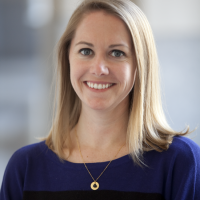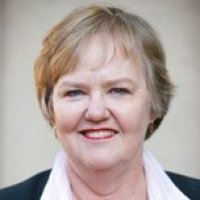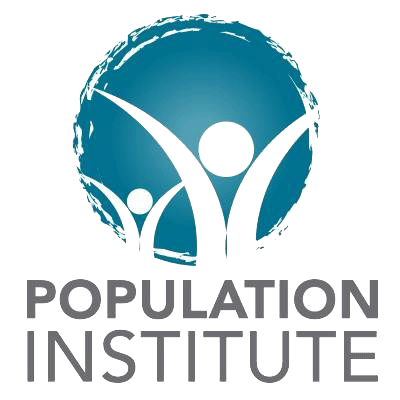Building Resilience in the Sahel in an Era of Forced Displacement
“The impacts of displacement present major challenges at every level of decision-making, but the opportunities for interventions that build resilience to climate change, foster social cohesion, and address gender and other disparities—well they’re also very real as well,” said Ambassador Mark Green, President, Director, and CEO of the Wilson Center, during his opening remarks at a recent event hosted by the Wilson Center and Population Institute to explore innovative approaches to addressing the underlying drivers of forced displacement in the Sahel.
More than 80 million people are displaced worldwide, which is double the number from 10 years ago, and the number of internally displaced people in the Sahel has quadrupled in the last two years alone. “There’s a real imperative to solve displacement quickly,” said Elizabeth Ferris, Research Professor at the Institute for the Study of International Migration at Georgetown University. Displaced people are now being displaced for longer periods of time, making it harder for them to return home or find other solutions.
Those who are most vulnerable will face the worst effects of these interrelated crises. For example, women and girls are disproportionately affected by displacement due to lost access to essential health services, food and water insecurity, and school closures which pose risks to their safety and security. These compounding crises will also escalate gender-based violence in the home, sexual exploitation and trafficking, and forced marriage, said Ambassador Green.
Identifying Challenges in the Region
The panelists identified several stressors, accentuated by climate change, that have driven instability and fragile governance in the Sahel. Climate change inflames competition between communities over scarce land and resources, which has escalated violent conflict in the region. It undermines social cohesion and trust in state institutions. And it intensifies migration, as communities facing economic hardship seek safety and opportunities elsewhere. The root causes of the displacement crisis are deep and intertwined, and are amplified by the climate crisis, said Ambassador Green.
“Poor governance, exclusion, and marginalization” contribute to a pernicious cycle of conflict in the Sahel, said Wise Nzikie Ngasa, Justice and Resilience Programme Director of Mercy Corps in Mali. In the eyes of many communities, states in the Sahel have not proven themselves capable of providing basic services and meeting their security needs—abuse at the hands of security forces is a common occurrence. In response, some communities have resorted to creating their own self-defense groups for protection, which can, in turn, fuel more violent conflict in the region. In these conditions, it is harder for states to maintain order, perform basic functions, and earn trust in the community. These dynamics of mistrust and low state capacity compound viciously.
Impacts of Climate Change on Displacement
“We are in the midst of a climate crisis. It’s very tangible,” said Kayly Ober, Senior Advocate and Program Manager of the Climate Displacement Program at Refugees International. The climate crisis poses particularly heightened risks in the Sahel, as temperatures are likely to rise one and a half times faster in the region than in the rest of the world. As climate change worsens in the Sahel, the population is experiencing growing food insecurity, worsening violent conflict, and increased rates of forced displacement.
But precisely pinning down the magnitude and underlying processes of climate-related migration can be difficult. According to the International Displacement Monitoring Centre, the number of displacements driven by slow onset disasters is not known. More broadly, while it is tempting to draw straightforward conclusions between climate change, resource availability, and violence, the precise mechanisms at play are complicated, often connected to political institutions and social dynamics. “Climate is rarely the only factor that makes an individual or a household decide to move,” said Ober. “Decisions to migrate are complex and multi-causal.”
The poorest people in the Sahel will bear the brunt of climate change. “We know that the poor will be first to move because they will face debilitating shocks to their incomes and they have livelihoods that are more dependent on rain-fed agriculture—as we see in the Sahel as well,” said Ober. A majority of the population in the Sahel are farmers or livestock rearers who depend on rain-fed agriculture for income and survival, said Ngozi Amu, Team Leader and Head Research and Analysis at the United Nations Office for West Africa and the Sahel. Yet due to the economic capital needed to migrate, “the poorest of the poor may actually end up becoming trapped [and] unable to move even if they would like to,” said Ober.
The Biden Administration has indicated interest in action on climate-induced displacement. The February 2021 Executive Order calls for a report outlining policy recommendations for how the United States can provide foreign assistance and engage in multilateral frameworks to combat the problem. “I think there is an acknowledgement also there that climate change may induce different trends or dynamics around displacement or migration, and we can’t just simply bury our head in the sands about it. We have to be proactive and plan for it and so that’s what the executive order really calls for,” she said.
Building Resilience and Trust
“Building resilience requires that we work at the intersection of a multiplicity of issues,” said Ngasa, stressing the importance of multisectoral, locally-attuned approaches to crises in the Sahel. Solutions driven by communities—who are best placed to identify systematically the shocks and pressures to which they are most vulnerable—are more likely to succeed than top-down directives issued by the state. The Sahel is a large and diverse region, and the experience of vulnerability can vary tremendously, even within certain groups or geographic areas.
Non-government organizations (NGOs) can help rebuild trust in the state by providing governments with the resources, training, and technical capacity they need to supply vital services. “This method of using the state as direct implementing partners—it promotes the state actors in front of their own citizens,” said Florian Morier, Head of Stabilisation for the United Nations Development Programme in Cameroon. “So as a United Nations of international NGOs, we should work behind the scene. We should work in the shadow; we should not plant a UN flag or NGO flag everywhere we intervene.”
Improving civil-military relations is a crucial part of reinforcing state legitimacy and reducing violent extremism. “The uniform of the police is the visible part of the state to the common people,” Florian said. For decades, the armed forces played outsized roles in the governance of Sahelian states with little public transparency or accountability—Burkina Faso, Mali, Niger, Chad, and Mauritania all experienced military coups before 1978. As political control is transitioned to civilian authorities and domestic security and public health conditions deteriorate, a renewed focus on the relationship between civilians and security forces—and the clear delineation of responsibilities between a civilian justice system and military authority—is needed.
In his work with the UNDP, Florian has observed misconduct and abuses on the part of security personnel, who are often poorly paid and demoralized because of their dangerous deployments. Robust training programs and human rights monitoring, which the UNDP is helping to administer as part of its Lake Chad stabilization facility, can improve the capacity of security forces and the quality of their interactions with civilians. “We need the best police officers because they are the ambassadors of the state,” Florian said.
Despite the wide range of challenges confronting the Sahel region today, the panelists agreed that meaningful opportunities to promote resilience, build inclusive communities, and support economic development persist. “These issues are complicated, but great things are happening and can happen at the local level. Listening to communities, working with local partners, is all important,” said Ferris.
Written by Hannah Chosid, edited by Lauren Risi and Anuj Krishnamurthy
Continue the conversation on Twitter @NewSecurityBeat. Find related coverage of these issues on our blog, NewSecurityBeat.org.
Introduction

Moderator

Panelists


Hosted By

Environmental Change and Security Program
The Environmental Change and Security Program (ECSP) explores the connections between environmental change, health, and population dynamics and their links to conflict, human insecurity, and foreign policy. Read more


Maternal Health Initiative
Housed within the Wilson Center's Environmental Change and Security Program, the Maternal Health Initiative (MHI) leads the Wilson Center’s work on maternal health, global health equity, and gender equality. Read more


Africa Program
The Africa Program works to address the most critical issues facing Africa and US-Africa relations, build mutually beneficial US-Africa relations, and enhance knowledge and understanding about Africa in the United States. The Program achieves its mission through in-depth research and analyses, public discussion, working groups, and briefings that bring together policymakers, practitioners, and subject matter experts to analyze and offer practical options for tackling key challenges in Africa and in US-Africa relations. Read more

